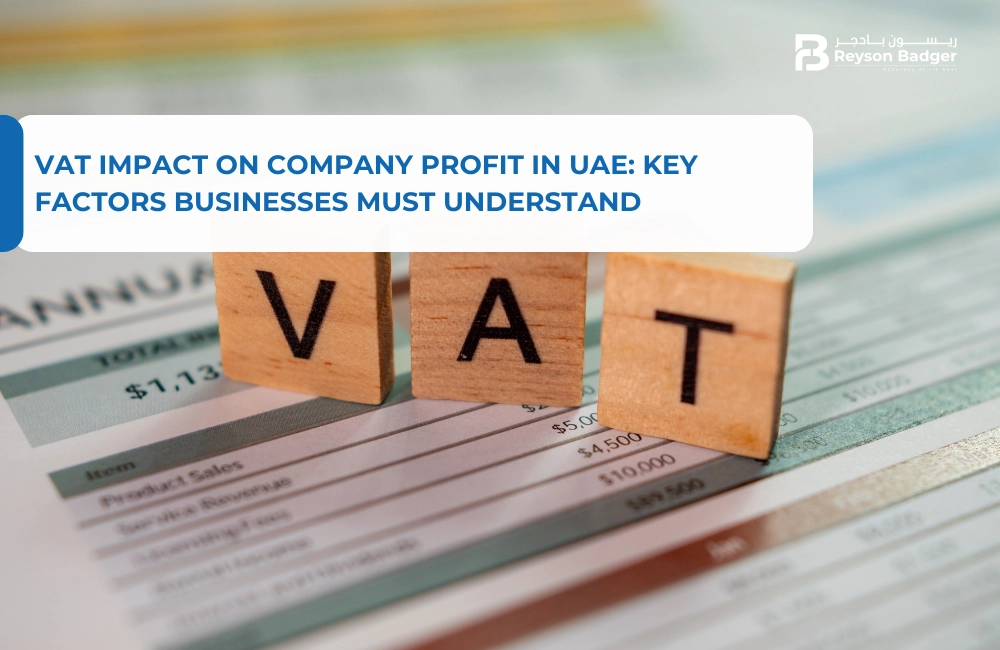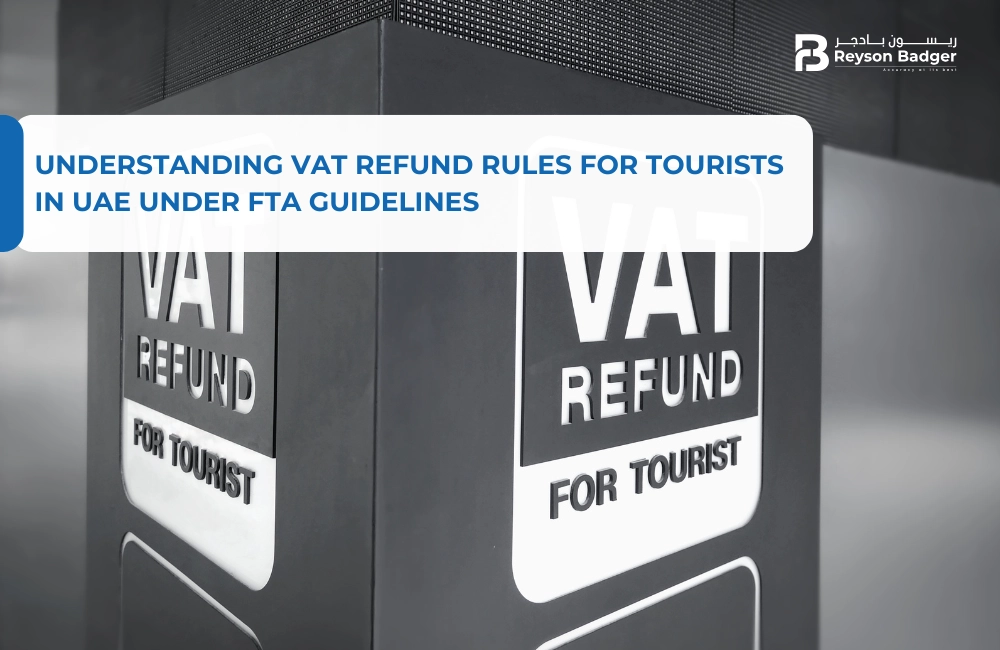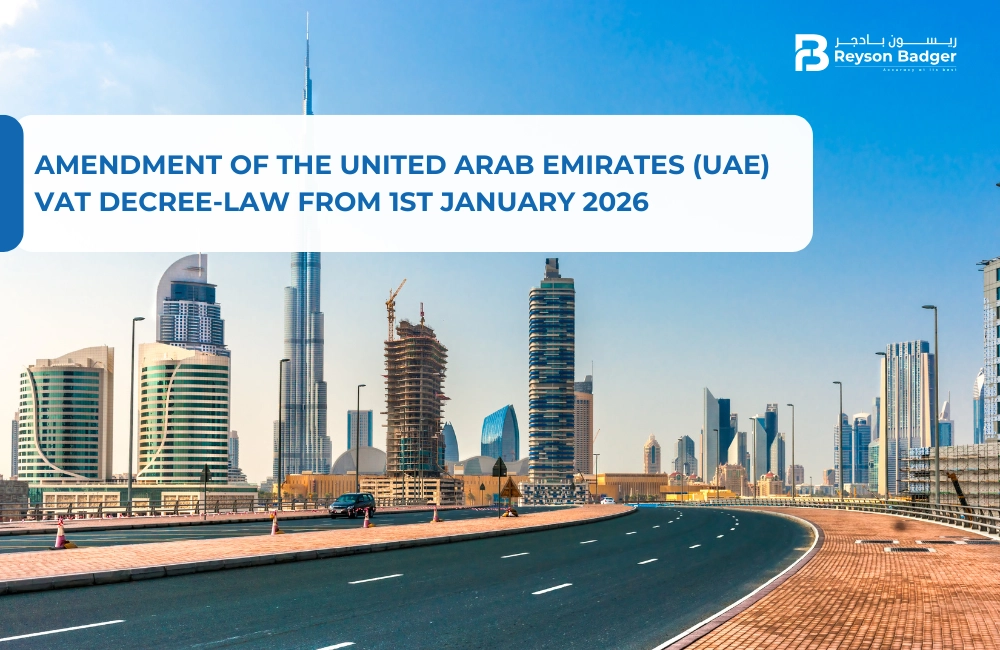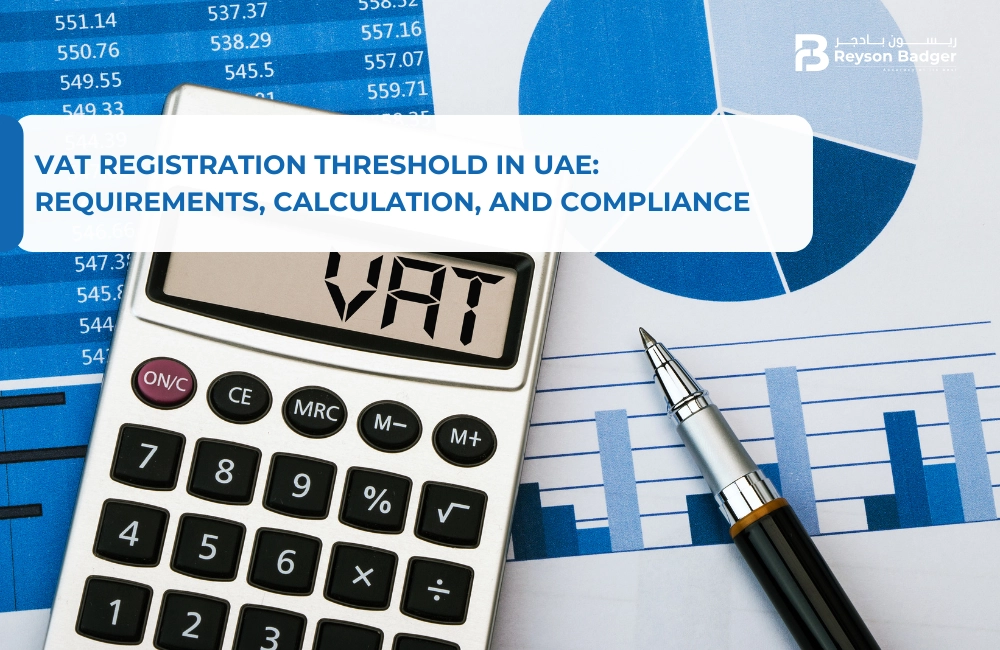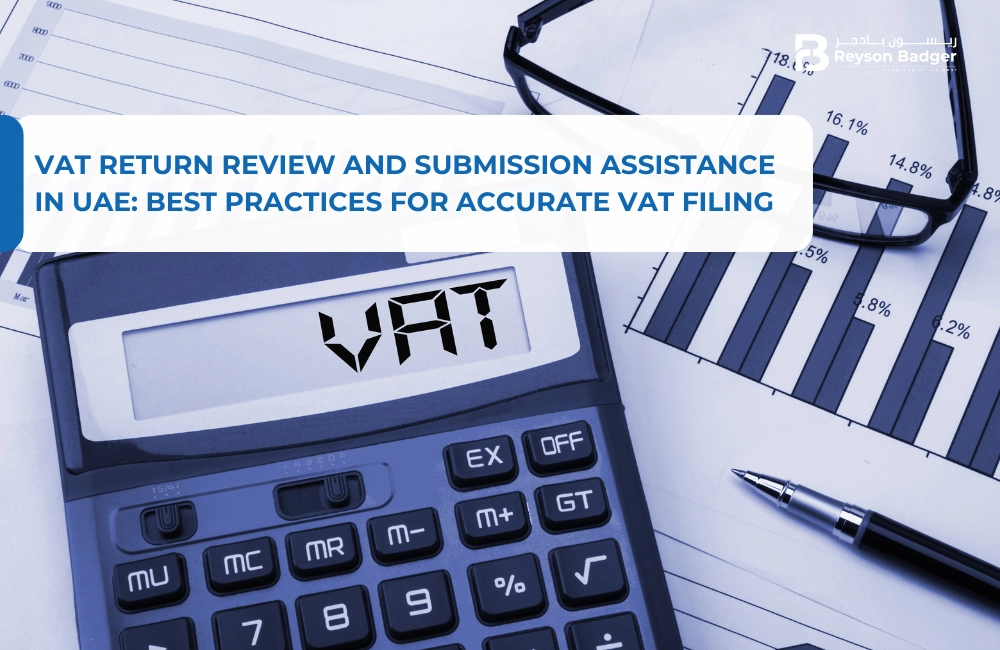VAT Impact on Company Profit in UAE: Key Factors Businesses Must Understand
19-Jan-2026
VAT Registration in UAE
Expert VAT registration services in the UAE,
supporting businesses with accurate registration
and full compliance with FTA regulations.
VAT Registration in Dubai
Value Added Tax (VAT) is a tax system that businesses in the UAE must follow to meet tax requirements. VAT Registration in Dubai is a process that businesses in the UAE must go through to comply with tax laws. This tax system was introduced in the UAE on January 1, 2018, as a way for the government to collect taxes on goods and services.
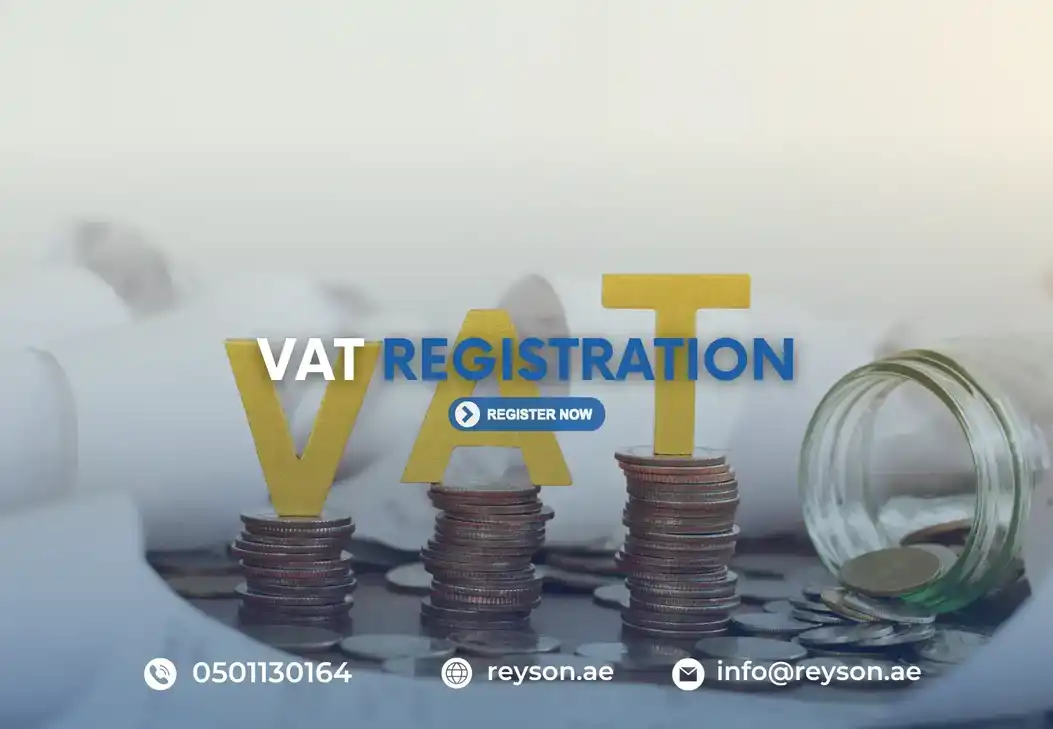
Registering for VAT is important for businesses because it allows them to legally operate and sell their products or services in the UAE. When a business is registered for VAT, it means they can charge VAT on their sales and then pay that collected VAT to the government.
What is VAT Registration?
Value Added Tax (VAT) was introduced in the UAE in 2018 as a consumption tax levied on the value added to goods and services at each stage of the supply chain. VAT registration procedure in Dubai is an important step for businesses operating in the UAE to comply with tax regulations.
VAT registration is like signing up officially with the government to join a tax system called Value Added Tax (VAT). The main goal of VAT registration is to help businesses collect and pay the right amount of VAT on the things they sell, which is important to follow the tax rules and support the government with tax money.
There are two types of VAT Registration:
Mandatory VAT Registration:
Businesses are required to register for VAT when they meet the registration criteria set by the Federal Tax Authority. In the UAE, if a business’s taxable supplies and imports exceed AED 375,000 during the previous 12 months, or are expected to exceed AED 375,000 within the next 30 days, VAT registration becomes mandatory. This rule ensures compliance and proper tax contribution from eligible businesses.
Voluntary VAT Registration:
Businesses with taxable supplies exceeding AED 187,500 but not exceeding AED 375,000 in the preceding 12 months or anticipated to exceed AED 375,000 in the next 12 months can choose to register voluntarily. Some businesses can choose to register for VAT even if they don't have to by law. They might do this to get back some of the VAT they paid on things they bought for their business or to show they are reliable in business. But once they register voluntarily, they have to follow all the VAT rules just like mandatory registrations.
The main difference between these two types is that mandatory registration is a must based on rules, while voluntary registration is a choice businesses can make for some benefits or to show they are responsible for handling taxes.
Who Should Register for VAT in UAE
Importance of VAT Registration in UAE
VAT registration is required for businesses to:
- Comply with tax laws and avoid penalties
- Claim input tax credits
- Avoid additional costs on goods and services
- Improve business credibility and reputation
- Expand business opportunities and competitiveness
All these things necessarily specify the importance of VAT registration in Dubai, UAE
Who Should Register under VAT?
It's a common question among business owners and individuals about who should be registered for VAT in the UAE . The following details helps to get a better idea of the same.
VAT Registration Eligibility
Local businesses and international corporations operating in the UAE must register for VAT within 30 days of their taxable supplies and imports exceeding the mandatory registration threshold of AED 375,000. Enterprises that do not meet the required limit can still register voluntarily.
The following businesses or individuals should register under VAT in UAE:
Mandatory Registration:
- Businesses must register for VAT if their taxable supplies and imports exceed AED 375,000 in the past 12 months.
- Businesses must also register if they are expected to exceed AED 375,000 within the next 30 days.
Voluntary Registration:
- Businesses with an annual taxable supply below AED 375,000.
- Businesses making zero-rated supplies (e.g., exports).
- Businesses wanting to claim VAT refunds.
- Businesses seeking to improve their credibility and reputation.
Other Eligible Persons:
- Non-resident businesses making taxable supplies in the UAE.
- Businesses providing services related to real estate, including renting or leasing.
- Businesses involved in the supply of goods and services are subject to VAT, even if the turnover is below the threshold.
To be eligible for VAT Registration in Dubai, businesses must:
- Be a legal entity (individual, company, partnership, etc.).
- Carry out economic activities (business, trade, profession, etc.).
- Make taxable supplies (goods and services subject to VAT).
Below is a link to our detailed article on the eligibility criteria for VAT registration in Dubai, UAE.
Eligibility Criteria for VAT Registration in UAE
Benefits of Voluntary Registration
Businesses that sign up voluntarily can get back some of the VAT they paid on things they bought for their business, which can help reduce the total VAT they owe. Voluntary registration also shows that a business is following tax rules and can make it look good to customers and partners.
If a business makes a lot of sales or brings in a lot of stuff, they have to join VAT. If they choose to join even though they don't have to, they can get back some of the tax they paid on their purchases and look good in the eyes of others.
VAT Turnover Calculation for Registration in UAE
To calculate the VAT turnover for Registration in UAE, follow these steps:
Identify taxable supplies: Include all goods and services subject to VAT at the standard rate (5%) or zero rate (0%).
Calculate the value of taxable supplies:
- For goods: the value of goods sold + customs duty + excise tax (if applicable)
- For services: value of services provided
Include exempt supplies: Add the value of exempt goods and services (e.g., financial services, healthcare, education)
Add the value of imported goods: Include the customs duty and excise tax (if applicable)
Example:
- Taxable goods sold: AED 1,000,000
- Customs duty: AED 50,000
- Excise tax: AED 20,000
- Taxable services provided: AED 500,000
- Exempt goods sold: AED 200,000
- Imported goods (customs duty and excise tax): AED 30,000
Total VAT turnover: AED 1,800,000 (AED 1,000,000 + AED 50,000 + AED 20,000 + AED 500,000 + AED 200,000 + AED 30,000)
If the total VAT turnover exceeds AED 375,000, the business must register for VAT.
FAQs
1. How long does it take to receive a TRN after applying for VAT registration?
Once the application is submitted correctly with all required documents, the FTA typically reviews and approves the VAT registration within a few working days. Upon approval, a Tax Registration Number (TRN) is issued.
2. Is VAT registration required for e-commerce businesses in Dubai?
Yes, e-commerce businesses must register for VAT if their taxable turnover exceeds the mandatory threshold. Online sellers, marketplace vendors, and digital service providers are subject to UAE VAT regulations.
3. What documents are typically required for VAT registration in Dubai?
Common documents include a trade license, passport copies of owners, Emirates ID (if applicable), bank account details, turnover proof, and business contact information. Accurate documentation speeds up approval.
FAQs
Latest Blogs

UAE to Become Global Capital of Entrepreneurship – What it Means for Company Formation?
UAE's vision to be global entrepreneurship hub fosters innovation, attracts investors, and creates vast opportunities for seamless company formation.
READ MORE →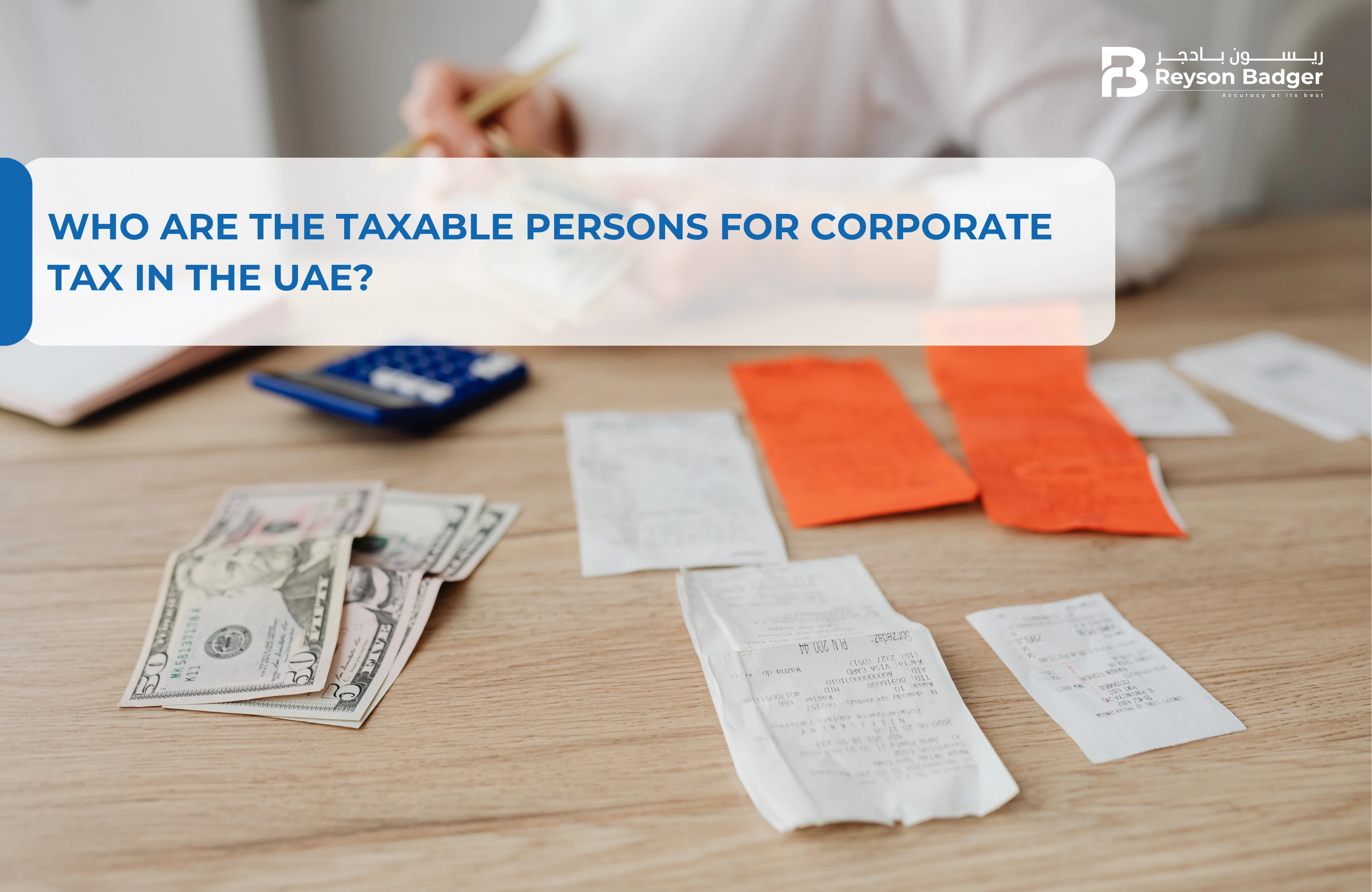
Who Are the Taxable Persons for Corporate Tax in the UAE?
Taxable persons for UAE Corporate Tax include mainland companies, free zone entities, and individuals conducting licensed business activities.
READ MORE →
Net Worth Certificate for UAE Visas: Investor, Family, Student & Golden Visa Requirements
READ MORE →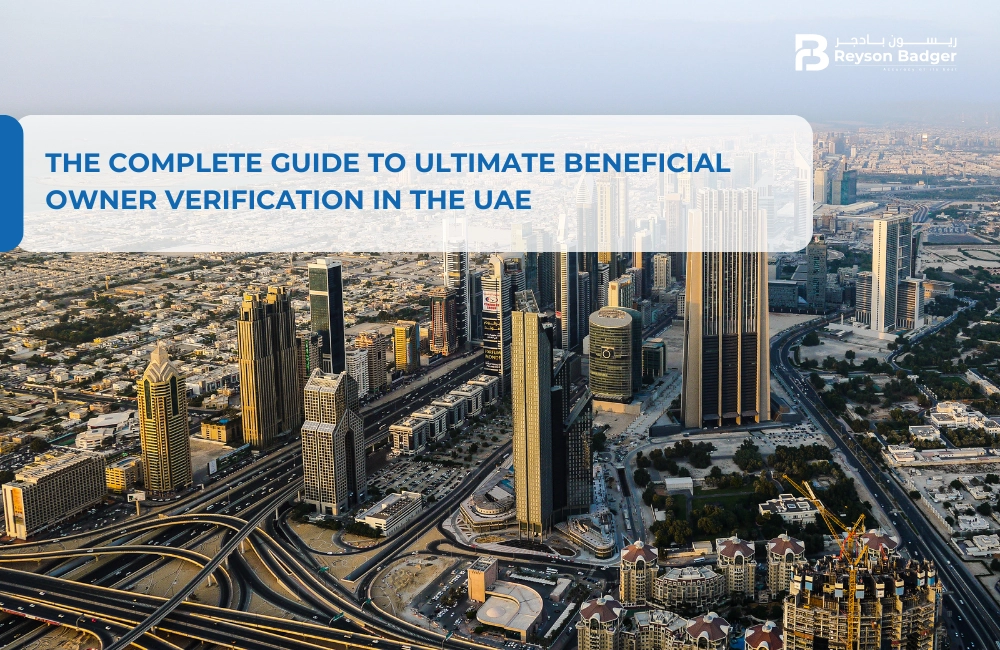
The Complete Guide to Ultimate Beneficial Owner Verification in the UAE
A complete guide to Ultimate Beneficial Owner rules in the UAE, UBO verification steps, compliance requirements, and how expert support can help businesses avoid penalties.
READ MORE →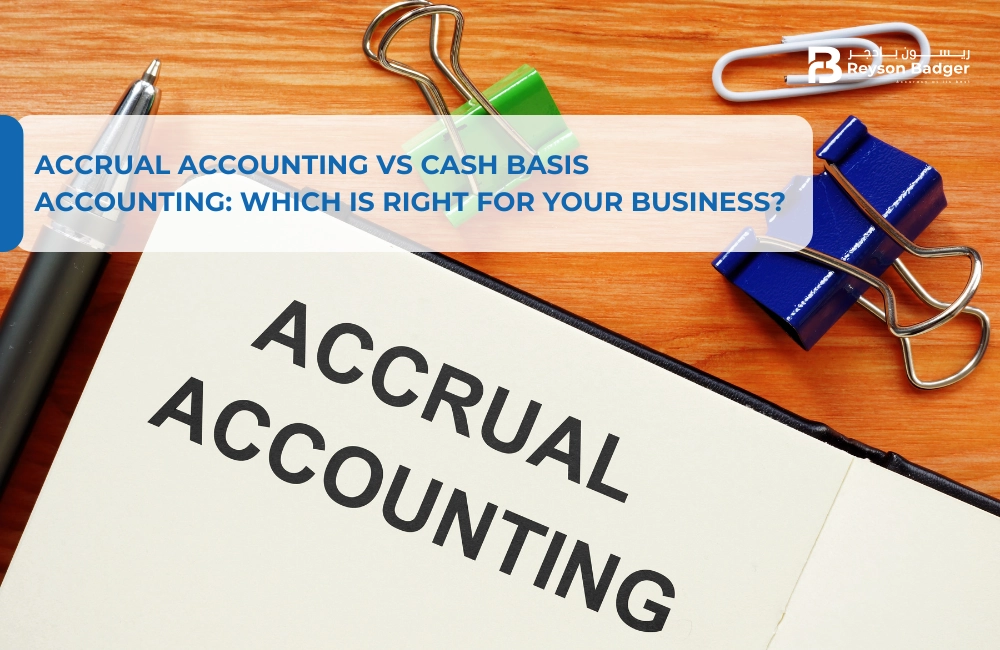
Accrual Accounting vs Cash Basis Accounting: Which Is Right for Your Business?
Accounting Companies in Dubai ensures that your accounting method aligns with UAE regulations and business goals.
READ MORE →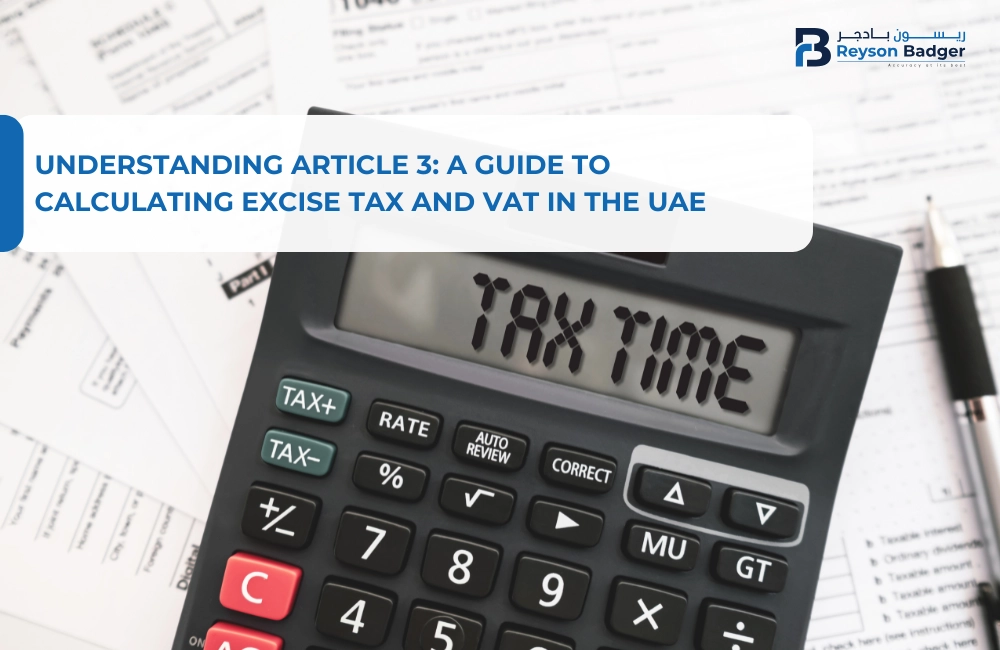
Understanding Article 3: A Guide to Calculating Excise Tax and VAT in the UAE
This blog provides a clear guide to understanding Article 3 and how it affects the calculation of excise tax and VAT in the UAE. It explains the applicable tax rules, computation methods, and compliance considerations businesses must follow to ensure accurate tax reporting and regulatory adherence.
READ MORE →
How to Get a Net Worth Certificate in Abu Dhabi & Sharjah from a Licensed Auditor?
Learn how to obtain a Net Worth Certificate in Abu Dhabi and Sharjah, including required documents, processing time, costs, and why certification by a licensed UAE auditor is essential for visas, bank loans, and business purposes.
READ MORE →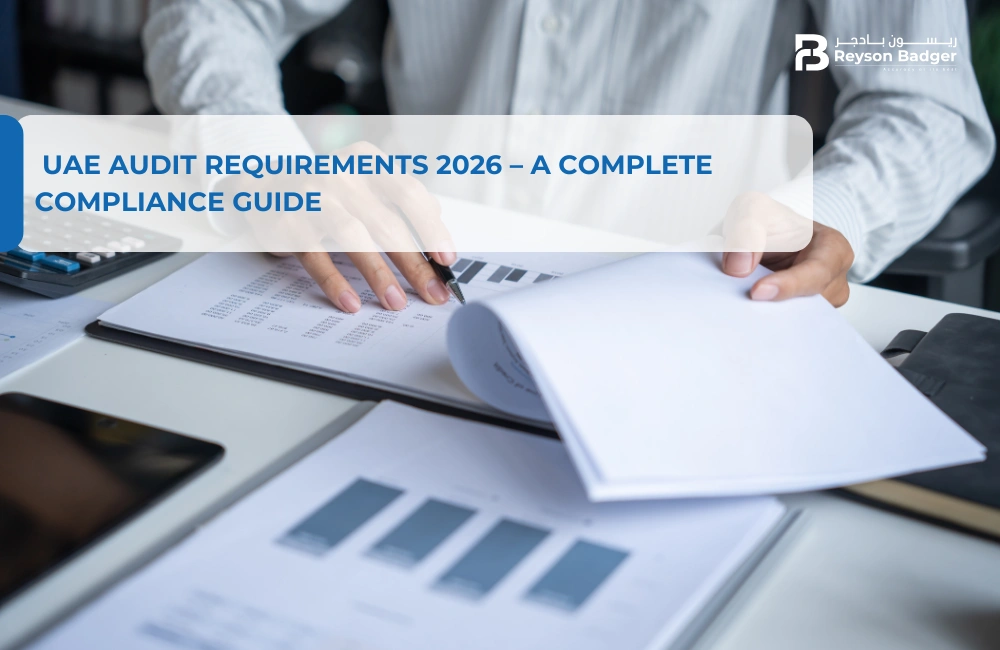
UAE Audit Requirements 2026 – A Complete Compliance Guide
A clear overview of UAE audit requirements in 2026, covering compliance obligations, regulatory updates, and key reporting standards for businesses.
READ MORE →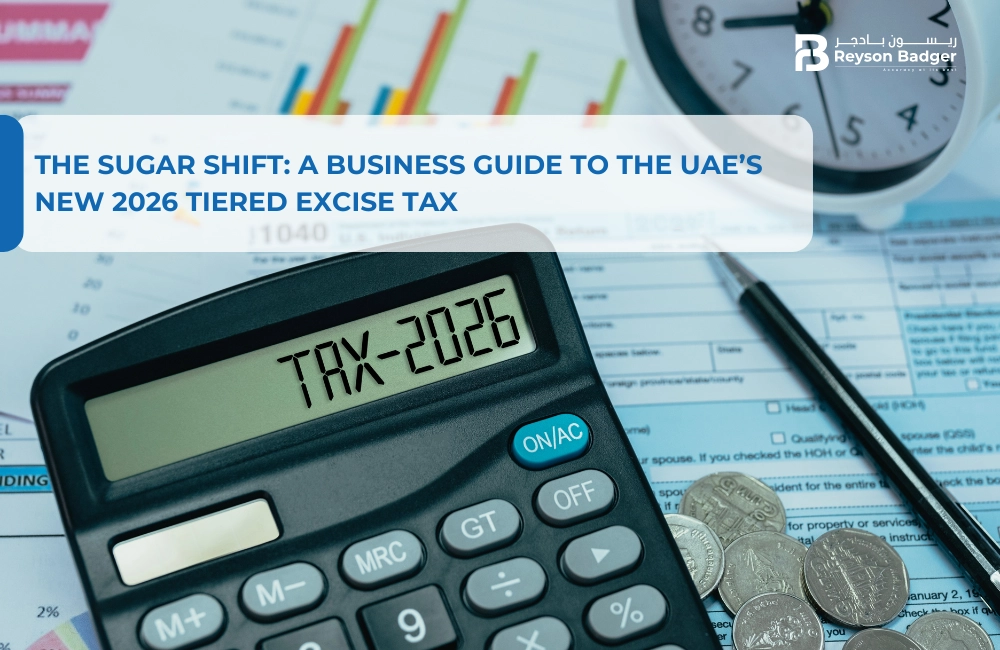
The Sugar Shift: A Business Guide to the UAE’s New 2026 Tiered Excise Tax
The UAE’s new 2026 tiered excise tax introduces a structured approach to taxing sugar-sweetened beverages based on sugar content. This guide explains how the updated excise framework affects manufacturers, importers, and distributors, outlining compliance requirements, financial implications, and practical steps businesses must take to stay prepared.
READ MORE →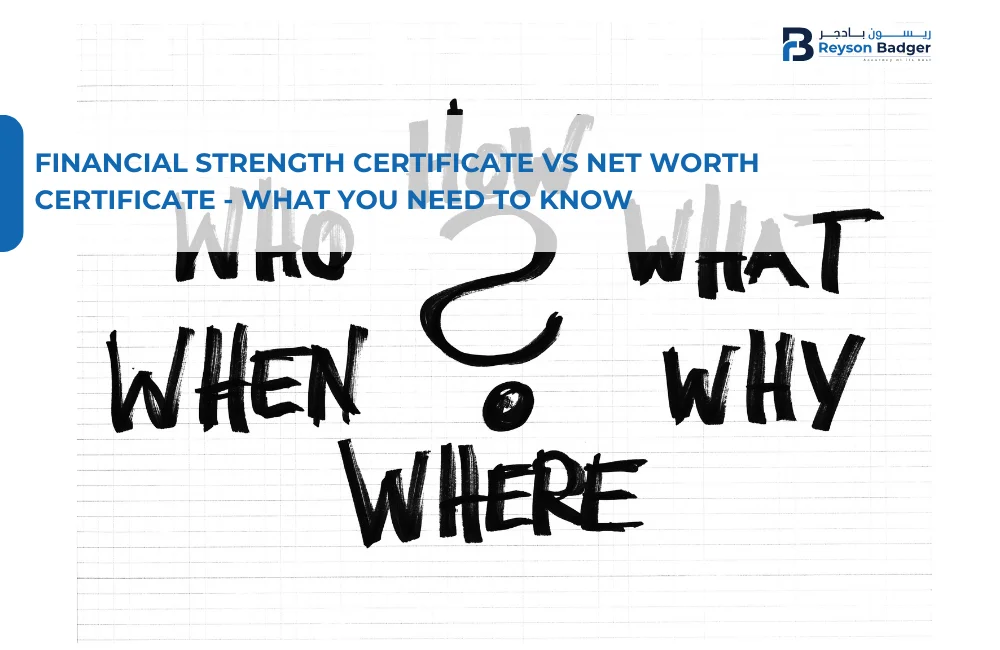
Financial Strength Certificate vs Net Worth Certificate - What You Need to Know
Understand the key differences between a Financial Strength Certificate and a Net Worth Certificate in the UAE. Learn which document authorities require and how professionally prepared certification from Reyson Badger can help ensure faster, compliant approvals.
READ MORE → The Federal Tax Authority (FTA) has announced that businesses must complete Corporate Tax registration within 90 days from the Date of Incorporation / MOA.
The Federal Tax Authority (FTA) has announced that businesses must complete Corporate Tax registration within 90 days from the Date of Incorporation / MOA.